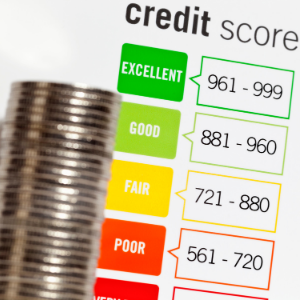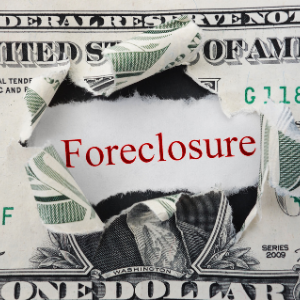
When it comes to selling your home in Maryland, understanding your options is crucial. While selling to the bank may seem like a convenient choice, it’s essential to explore all available options to maximize your profit and ensure a seamless transaction. From traditional real estate listings to direct sales to investors, each method offers unique benefits and potential drawbacks. Whether you’re facing foreclosure or seeking a quick, hassle-free sale, this guide provides valuable insights into navigating the Maryland housing market effectively and selecting the best option for your specific circumstances.
Key Highlights
- Explore alternative options, such as cash home buyers and foreclosure mediation in Maryland, for a quick and stress-free sale of your property.
- Selling your house to the bank can offer fast financial relief and potentially favorable transition terms.
- Understand Maryland-specific laws and eligibility criteria before proceeding with a bank sale to optimize outcomes.
- Cash buyers provide a speedy option, avoiding market delays and traditional selling hurdles.
- Foreclosure mediation facilitates negotiations for loan modifications, thereby increasing the likelihood of retaining your home.
Understanding the Concept of Selling Your House to the Bank
When you need to sell your house quickly or mitigate financial obligations, considering the option to sell your home to the bank might be appealing. This method can alleviate financial burdens and provide a swift resolution to ongoing mortgage concerns. In Maryland, this type of transaction is often seen as a strategic move for those facing financial difficulties. We’ll explore why homeowners might consider this route and how the process unfolds within Maryland’s unique legal and economic landscape. Embark on a journey to understand the nuances of selling your house to a bank and navigate the potential benefits and challenges it entails.
Why Consider Selling to the Bank?

Maryland homeowners having trouble paying their mortgage might think about selling their house to their bank. Selling to the bank could let them exit their debt situation without the damage to their credit that a foreclosure would cause. It’s also a faster option, with no closing costs, direct to the consumer, which is preferable to those who need to move without the hassle of a full market sale.
Selling the house to the bank outright avoids the staging, showings, and negotiations that come with selling a house the traditional way. This is a good option for homeowners who owe their bank more than their home is worth. In particular, banks suffer losses when homeowners decide to default on their mortgages. Bankruptcy is a lose-lose situation for everyone. To avoid this situation, banks often allow homeowners to sell through a short sale. A short sale is when a bank agrees to let a homeowner sell their house for less than what is owed, and the bank takes the loss.
Foreclosure is preferable for both banks and homeowners. Most homeowners are pleased by the outcomes of the sale, often getting to sell their house without ever leaving. They are also typically granted intermediate terms, such as closing days, relocation assistance, and temporary housing, to help them transition to a new place. All of this adds value. These types of situations enable Maryland homeowners to obtain a line of credit for their debt relief.
How Does the Process Work in Maryland?
If you’re in Maryland and need to sell your home to the bank, the closing steps are laid out to accommodate homeowners in financial difficulty in the best way possible. The first step is to contact your bank or mortgage lender. Since every situation is different, the configuration of the problem can only be done with honest and open answers about your circumstances, and that will result in the best potential for future and ongoing cooperation.
After that, the homeowner will need to pull together some documents. Documents such as mortgage papers, financial records, and letters from your lender. This information will enable the bank to obtain a comprehensive understanding of your situation and determine whether it is suitable for a bank sale.
The bank will conduct an appraisal to determine the value of your home, and with that information, it can make an offer. It is just as vital that you understand the stipulations of Maryland that will be applied to your case, as those can dictate a lot in terms of the steps you will need to take, and how long the entire process will take.
While negotiations are ongoing, homeowners must remain active and maintain open communication. Some banks may offer options such as loan modifications or refinancing, which can provide temporary relief or even prevent the sale altogether. Homeowners also need to be mindful of the tax consequences if the debt is forgiven, as the IRS may consider it taxable income. It’s best to consult a tax expert to help avoid surprises.
Maryland homeowners can navigate this process smoothly by staying informed, organized, and actively engaged throughout the process. Selling the house to the bank can help ease the financial burden and lead to more long-term stability.
Benefits and Drawbacks of Selling Your House to the Bank
Selling your home to a bank in Maryland is a complex process that comes with both advantages and disadvantages. On the one hand, you might be able to resolve any mortgages and debts you owe in a short span of time. On the other hand, some consequences need to be taken into consideration. Considerations such as the long-term consequences of what this will do to your finances and credit score. Each person will need to decide for themselves, but weighing out the options is the best way to see if this is the best solution for you.
Advantages for Homeowners
For individuals under financial stress, selling a home back to the bank may offer some significant benefits for Maryland homeowners. The primary, most meaningful advantage is the speed of the process. It’s a quick way for homeowners to eliminate mortgage obligations and avoid foreclosure. Resolving mortgage obligations promptly can alleviate stress and provide individuals with a fresh start.
The second meaningful advantage is the ability to protect your credit score. Foreclosures can be damaging to your credit score and negatively impact future housing opportunities. Homeowners can enter into a sell-back agreement with a bank, which can help mitigate the impact on their credit score. This can protect their credit score and make it easier to achieve other financial goals.
However, homeowners don’t have to worry about other things that come with selling the home the traditional way, like staging, repairs, showings, and buyer negotiations. Additionally, selling directly to the bank speeds up the process, allowing homeowners to focus on their next steps. Since most of the focus is on the transaction with the bank, other aspects, such as relocation and flexibility with the closing date, become options as the bank may want to assist during the transition.
In more extreme cases, the bank may also grant homeowners short sales, allowing them to sell the home for a price that is significantly less than the amount owed on the mortgage. This method also enables more long-term debt relief and prevents issues from worsening. This also provides the homeowner with relief in learning about mortgages, their legal obligations, and the marketplace. This provides them with the means to make better financial decisions.
The option of selling your home to the bank may be a good fit, as it provides both immediate relief and long-term financial security. It also makes a typically stressful process much easier. This makes selling your home to the bank a viable option for many homeowners in Maryland facing challenging situations.
Potential Drawbacks to Consider

Although selling your house back to the bank in Maryland may be one of the more practical solutions for distressed homeowners, there are definite cons to consider before moving forward. One of the most significant impacts, and perhaps the greatest concern to address, is the impact on one’s credit and overall economic profile. While this option is generally less damaging than going through a full foreclosure, mortgages that are paid late (or not at all) undergo a foreclosure process, and the bank’s delinquency on the mortgage will be reported to credit agencies. Loss of credit will occur to the extent that further loans will not be available upon request, so this must be weighed against one’s overall remaining financial goals.
Another critical issue is the potential for a financial gap to emerge. Given the current market conditions, the home value is likely to be less than the remaining mortgage balance. In these instances of debt (often referred to as a short sale), a bank may elect to forgive the remaining unpaid debt owed to them. This loss of debt is still considered taxable income by the IRS and will be taxed accordingly. New, surprise taxes can be avoided by simply understanding the various implications of the ways debt can be forgiven.
When you sell to the bank, you lose control of the entire process. In a typical sale, you can control the marketing of the house to attract buyers. If you sell to the bank, there is no marketing control and no competitive bidding. Selling to the bank is likely to result in a lower sale price, and a lower sale price is definitely something to consider in Maryland’s changing real estate market.
There is the emotional aspect to consider, so it is something more than just economics. A house is full of personal memories, and the decision to sell can often feel abrupt. That makes the entire situation even more stressful. Factors other than finances also need to be considered, and they are just as important.
Finally, there are Maryland-specific legal requirements to consider. Things can be complicated, and the state’s regulations and lenders’ requirements can be pretty complex. Most homeowners will need to consult with a real estate agent, a lawyer, or a housing counselor to ensure they are legally protected and covered. There’s a lot of added cost and complexity.
In the end, selling your house to the bank may relieve financial pressure in the short term; however, this option also has several drawbacks to consider. Weighing the pros and cons of selling their house to the bank will help homeowners in Maryland make informed choices that best serve their short-term and long-term goals.
Steps to Sell Your House Back to the Bank
When relinquishing ownership of your house involves understanding specific necessary steps and intricacies, selling your home back to a bank in Maryland begins with assessing your eligibility as a homeowner in the state. From there, understanding the key steps in the process gives you the needed confidence to tackle the legal and financial intricacies of selling a house back to a bank. Knowing the steps in selling back to a bank also empowers you to make the most optimal and value-aligned decisions towards achieving your individual goals.
Eligibility Criteria for Maryland Homeowners
To sell your home back to the bank in Maryland, you must first identify the key criteria that make you eligible. These key criteria stem from your mortgage specifics, current financial condition, and payment status, and are not simply from your wish to sell the home. Justifiable financial hardship, as well as the legal statutes governing your loan, determine eligibility.
A significant concern is the situation concerning your mortgage. Homeowners often face financial crises. They may be behind on mortgage payments, and are usually sent a notice of default. It is essential to note that when a loan becomes delinquent, the bank is aware of the increased risk of foreclosure. It may be more inline to entertain options such as allowing you to sell the home back to them.
The type of loan you have also matters. Different mortgage loans, such as FHA, VA, or other federally backed loans, have their own guidelines that may simplify the process of selling a mortgage loan to a bank. To identify what options are available based on the mortgage loan you have, you should review your loan paperwork and call your lender to get further details.
Another important factor is your equity position. Homeowners experiencing negative equity (owing more on their mortgage than their house is worth) are typically stronger candidates for selling back to the bank, as traditional sales do not allow for recovering the full loan balance. In the case of positive equity, however, the bank sale becomes less likely, and it is often more financially beneficial to sell on the open market.
Maryland’s unique legal protections and assistance programs can also shape your eligibility. These local resources can help distressed homeowners more easily obtain assistance and clarify their options. A Maryland housing counselor or real estate attorney can help tailor the explanation of the applicable laws and programs to the more relevant aid available, which can significantly help the distressed homeowner and may influence the bank’s position.
Ultimately, the bank’s eligibility determination depends on its financial and legal standing. From your side, knowing clearly your mortgage status, equity position, and loan documents, and using Maryland’s assistance resources, you can more confidently decide to pursue your option of selling your house back to the bank.
Key Steps Involved in the Process
After learning about your ability to sell your house back to the bank in Maryland, the next step is to complete several important tasks to ensure the process proceeds smoothly. The first step is to contact your lender as early as possible. The bank needs to be aware of your financial difficulties and that you wish to sell your house, so that you can together understand your goals and set a good tone for the obstacles to come.
The next step is to prepare your documentation. The necessary documentation you need to prepare includes your mortgage documents, proof of income, and any paperwork that demonstrates financial difficulties. Having a well-organized and complete file at the bank allows them to gain a better understanding of your situation, which will enable you to have more confidence in getting your request for the sale of your house approved.
You can expect the bank to do a property evaluation for your house through an appraisal. The bank uses this document to determine the value of your home, which enables it to make an offer for it. It would really help improve the outcome of the appraisal document if you attend the appraisal and point out the features of your house that have changed or the improvements that have been made.
Once the appraisal is done, negotiate the sale. This is the timeframe when the bank can consider other options, such as loan modification, refinancing, or repayment. These discussions keep the sales process moving and help you evaluate all options to make the most informed decision.
Finally, selling your home back to the bank comes with both legal implications and tax considerations. For example, about short sales, the IRS considers the forgiven debt as income. That’s why you should talk to a tax professional or a real estate attorney who specializes in Maryland to avoid the expensive lessons other people may experience.
By maintaining streamlined communication with your lender and staying organized, along with seeking professional help when necessary, Maryland homeowners can make informed decisions for their financial future.
Alternative Options for Eligible Homeowners
For homeowners in Maryland, exploring various options beyond selling your house to the bank can be essential when facing financial challenges. These alternatives include cash home buyer opportunities and foreclosure mediation, each offering unique benefits. Cash buyers provide a speedy transaction that can avert foreclosure and secure immediate payment. On the other hand, foreclosure mediation provides homeowners with the opportunity to negotiate with lenders to avoid foreclosure altogether. Understanding these options in the context of Maryland’s market is crucial for homeowners seeking swift solutions while maintaining financial stability.
| Option Type | Key Benefits | Potential Drawbacks |
| Cash Home Buyer Opportunities | Quick sale process, immediate liquidity | Possible lower sale price |
| Foreclosure Mediation | Negotiate new payment terms, avoid foreclosure | Prolonged negotiation period |
Alternative options, such as cash home buyer opportunities and foreclosure mediation, provide Maryland homeowners with viable strategies to navigate financial difficulties and potentially avoid foreclosure. These options can provide immediate relief or long-term solutions tailored to the homeowner’s unique circumstances.
Exploring Cash Home Buyer Opportunities
If you’re a Maryland homeowner looking to sell your home quickly and seamlessly, there are cash home buyers available. These buyers are typically real estate investors, making the entire process more efficient and streamlined. As a result, cash buyers close in a fraction of the time it takes a traditional buyer to complete the process. This can really help homeowners who need to sell before a foreclosure due date, as it allows them to quickly and easily close their mortgage. These buyers save homeowners the hassle of the traditional market process, which can take a considerable amount of time.
If speed, ease, and certainty are priorities, cash buyers enable immediate access to funds, reducing the risk of more financial strain, credit damage, and delays. Cash home buyers avoid the common roadblocks of a home sale, such as buyer financing contingencies and appraisal issues. Since these buyers have cash on hand, there is no risk of the sale falling through due to financing issues.
In the competitive real estate market in Maryland, stress-free selling is made possible by the cash buyers. These buyers require no repairs, upgrades, or cleaning of the house that the owner must do before selling. Additionally, with no waiting period for the home to sell, the equity in the house becomes available. Cash buyers appreciate the fair offers made in a less time-consuming manner. Indeed, having a fair cash offer is beneficial since closing with a cash offer is significantly faster.
If a homeowner is facing foreclosure, selling the home quickly is of utmost importance. Cash buyers relieve this stress quickly with a speedier offer. Their offers may be below market value, but saving time, hassle, and money is a stress-relieving experience. This stress-relieved trade-off is advantageous for the homeowner.
Choosing a reputable buyer is essential. This is where CR of Maryland I LLC stands out as a trusted and experienced cash home buyer in the state of Maryland. The company has earned a strong reputation for providing fair, fast cash offers and helping homeowners avoid foreclosure by offering a reliable, hassle-free way to sell your house fast for cash in Baltimore, MD. CR of Maryland I LLC is recognized for its transparency, professionalism, and ability to purchase homes in any condition, which gives homeowners confidence that they’re working with a legitimate and dependable partner.
Whether you’re seeking a quick exit, trying to stop foreclosure, or simply want a smooth, guaranteed sale, cash home buyers—especially a reputable company like CR of Maryland I LLC—can provide a safe, efficient, and stress-free path forward. Contact us at (443) 278-2743 today to know more!
Considering Foreclosure Mediation for Avoiding Foreclosure

Avoiding foreclosure is one of the benefits of foreclosure mediation, which is available to Maryland homeowners, as well as the opportunity to negotiate alternative foreclosure options with their lender. The mediation process enables the borrower and lender to negotiate favorable terms, such as home retention through loan modification, lowered interest rates, or extended loan repayment terms, making the mortgage more manageable.
In Maryland, mediation is available as soon as a lender sends a notice of foreclosure. A neutral mediator in the middle of the foreclosure mediation guides the conversations to help each side understand the potential of loan modifications, short sales, or deed-in-lieu agreements. This allows homeowners to understand the consequences—such as credit scores, taxes, and other financial impacts—of making financially impactful decisions.
To get the most out of foreclosure mediation, here are some preparation steps homeowners can take so that they are fully ready:
- All loan documents, payment histories, and correspondence with the lender should be collected and retained for future reference.
- The construction of a budget should reflect realistic numbers and demonstrate the interplay between income and expenses, taking into account any referenced financial hardship.
- A hardship letter that explains the rationale for missing payments should be written.
- Options for loan modifications or programs for avoiding foreclosure should be researched.
- Contact a foreclosure attorney or housing counselor for assistance.
- Lenders should respond promptly, and maintaining open lines of communication is essential.
In mediation, although it is possible that foreclosure is not stopped, there is still an opportunity to reach a more positive settlement outcome that may result in maintaining homeownership.
Frequently Asked Questions
What are the advantages of selling your house to the bank in Maryland?
Selling your house to the bank can provide immediate financial relief and expedite the process by avoiding lengthy market delays. It can also protect your credit score compared to foreclosure and offer potential negotiation benefits, such as relocation assistance and favorable terms.
What documents are necessary when considering selling your house to the bank?
You need to gather comprehensive documentation, including current mortgage statements, proof of income, financial records, and any correspondence with the lender that outlines your financial difficulties. These documents help present a clear case to the bank for the feasibility of a sale.
How can cash home buyers benefit Maryland homeowners facing foreclosure?
Cash home buyers can offer a swift, hassle-free transaction, providing immediate liquidity to homeowners. This can prevent foreclosure by settling mortgage obligations quickly and maintaining the homeowner’s credit profile.
What is foreclosure mediation, and how can it aid Maryland homeowners?
Foreclosure mediation is a process that facilitates dialogue between homeowners and lenders to explore alternatives to foreclosure. It can result in loan modifications or other arrangements that allow homeowners to retain their homes under more manageable terms.
What are the potential drawbacks of selling your house to the bank in Maryland?
Selling to the bank can lead to financial loss if the property’s market value is lower than the mortgage balance, resulting in a possible short sale. This may also have tax implications if forgiven debt is considered taxable income. Furthermore, sellers relinquish control of the sale and might receive less than the property’s worth.
Helpful Maryland Blog Articles
- Who Pays the HOA Fees at Closing in Maryland
- Can the Seller Back Out of a Contract in Maryland
- How to Do a Sale by Owner in Maryland
- Can You Sell Your House to the Bank in Maryland?
- How to Sell a Hoarder House in Maryland
- Divorce Home Appraisal in Maryland
- How to Sell a House with a Code Violation in Maryland
- How to Avoid Closing Costs in Maryland
- Selling Rental Property at a Loss in Maryland
- How to Sell a House With Termites in Maryland
